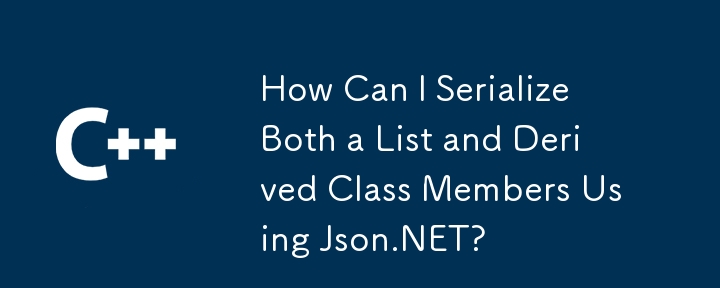

Customizing Json.NET Serialization for Derived List Classes
Introduction
When extending a class derived from List
Approaches to Serializing Both List and Derived Class Members
There are two main approaches to address this issue:
Public Property Exposure
One option is to create a public property in the derived class that exposes the list. By doing so, Json.Net will recognize the property and serialize both it and the derived class members. However, this approach can introduce unnecessary complexity if the list should only be accessible internally.
Custom JsonConverter
Alternatively, a custom JsonConverter can be implemented to control the serialization process. This allows for more flexibility in defining the desired serialization behavior. Here's an example of a converter for PagedResult
public class PagedResultConverter<T> : JsonConverter
{
// ... Implementation ...
}Within the converter, you can control the serialization and deserialization of the list and the derived class members independently.
Usage of Custom JsonConverter
To use the custom converter, it must be included in the JsonSerializerSettings:
JsonSerializerSettings settings = new JsonSerializerSettings(); settings.Converters.Add(new PagedResultConverter<string>()); settings.Formatting = Formatting.Indented;
Example Output Using Custom Converter
With the custom converter in place, the following JSON output will be generated when serializing PagedResult
{
"PageSize": 10,
"PageIndex": 0,
"TotalItems": 3,
"TotalPages": 1,
"Items": [
"foo",
"bar",
"baz"
]
}This approach allows for greater control over the serialization process and resolves the issue of serializing both the list and the derived class members effectively.
The above is the detailed content of How Can I Serialize Both a List and Derived Class Members Using Json.NET?. For more information, please follow other related articles on the PHP Chinese website!




